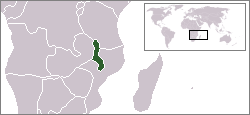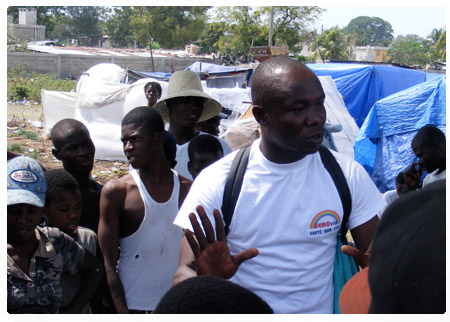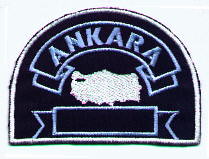 Image via Wikipedia
Image via Wikipedia“For years, Iranian authorities have committed atrocities against lesbian, gay, bisexual and transgender people, incited violence by others, and refused to admit that LGBT Iranians exist,” said Hossein Alizadeh, Regional Coordinator for the Middle East and North Africa at the International Gay and Lesbian Human Rights Commission (IGLHRC).
In the Concluding Observations [PDF] from its 3rd periodic review of the Islamic Republic of Iran, the United Nations Human Rights Committee has made clear that the government’s conduct amounts to a violation of the international laws that it has agreed to uphold. “As a state that prides itself in tradition and morality, Iran must now take immediate action to ensure its definitions of tradition and morality are in accordance with the fundamental principles of international human rights law.”
“The UN Human Rights Committee has sent a powerful message to the government of Iran that its treatment of lesbian, gay, bisexual, and transgender people constitutes systematic human rights violations that amount to failure to uphold its treaty obligations. The Committee has asked the Iranian government to widely circulate their Concluding Observations to the Iranian judiciary, government and civil society. After consulting with civil society, the government must submit a progress report about the implementation of the recommendations included in the Committee’s Concluding Observations. The Committee has specifically asked the Iranian government to include detailed information on the enjoyment of Covenant rights by members of the lesbian, gay, bisexual, and transgender community in its next periodic review."Key points from the UN Human Rights Committee Concluding Observations:
“We at the International Gay and Lesbian Human Rights Commission are both inspired and hopeful for continuing advances in human rights for everyone, everywhere. We are proud of the collaborative work of IGLHRC and our Iranian partners, the Iranian Queer Organization (IRQO), in contributing to this important advance through our joint Shadow Report entitled: Human Rights Violations on the Basis of Sexual Orientation, Gender Identity, and Homosexuality in the Islamic Republic of Iran and testimony before the UN Human Rights Committee.”
On November 3rd the United Nations Human Rights Committee, the sole authority within the United Nations system to evaluate and monitor states’ compliance with the International Covenant on Civil and Political Rights (ICCPR), informed the government of Iran that it must act immediately to eliminate the systematic discrimination against lesbian, gay, bisexual and transgender (LGBT) people.
The Human Rights Committee has urged the government of Iran to repeal or amend legislation that “could result in the discrimination, prosecution and punishment of people because of their sexual orientation or gender identity.” There is a range of discriminatory laws in Iran, among them laws criminalizing homosexual sex and punishing it with death.
The Human Rights Committee has called on the government of Iran to unconditionally release “anyone held solely on account of freely and mutually agreed sexual activities or sexual orientation.” Due to Iran’s opaque and corrupt justice system, the exact number of people held in detention on the basis of homosexual acts is unknown, however even one person incarcerated on this basis constitutes a violation of fundamental rights to privacy and non-discrimination.
The Human Rights Committee has called upon the government of Iran to “take all necessary legislative, administrative and other measures to eliminate and prohibit discrimination on the basis of sexual orientation.” The Committee references different spheres of life, including “employment, housing, education and health care” and calls upon the state to ensure that LGBT people are “protected from violence and social exclusion.”
Background


























 Join our page
Join our page

